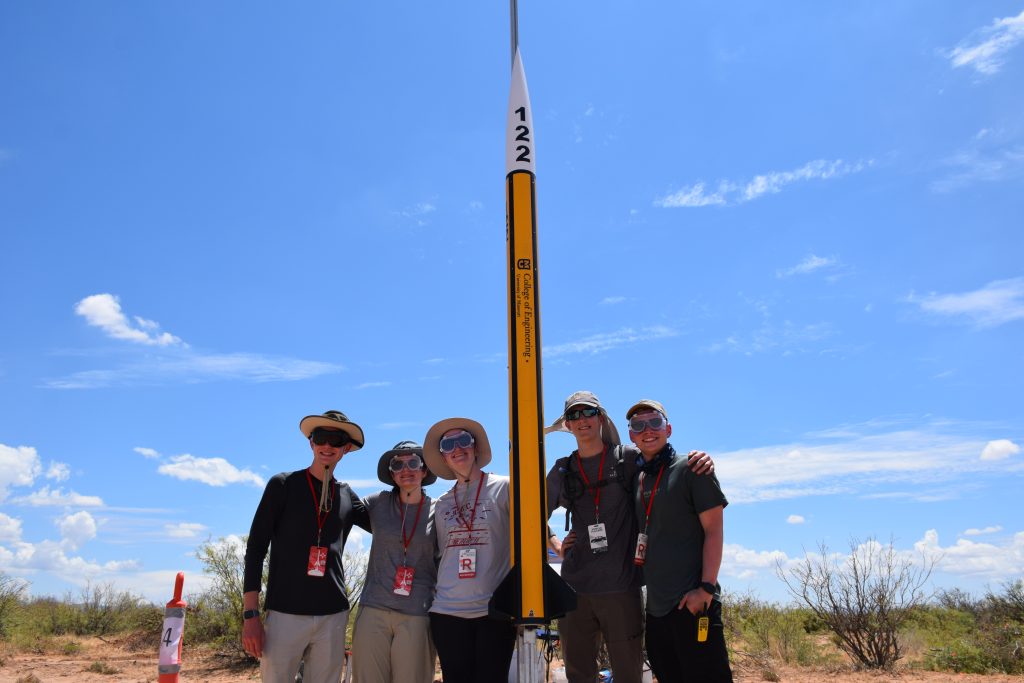September 06, 2022

The Mizzou Space Program’s performance has been out of this world, and the team is aiming even higher this academic year.
MSP recently attended two competitions, including the Argonia Cup in April, where they placed 6th. The result was an improvement from last year, when they could not recover their rocket during the competition, said Abigail Penfield, MSP president.
In June, there were more than 150 teams selected to compete at the Spaceport America Cup, the world’s largest intercollegiate rocketry competition, with 93 teams meeting the requirements to compete. MSP placed 14th in their category of 47 teams and 24th overall.
“This was our first year back at the Spaceport America Cup since 2019 due to COVID-19,” said Ryan Milewski, MSP payload specialist. “We exceeded our expectations.”
This fall, the team is celebrating its success with an eye on the future.
“I think everyone had a great time throughout the year, and we all learned a lot,” Penfield said. “There’s room for growth, but we’re aware of the areas we can improve in and have already begun brainstorming for this upcoming year.”
Even with impressive results, the competition season was not without setbacks. Milewski recalled having to re-engineer their rocket in their hotel rooms during the Argonia Cup.
“While we didn’t get much sleep that night, we were able to put our heads together and repair our rocket,” he said. “The competition taught us a lot about perseverance.”
MSP is a student-led organization that focuses on furthering aerospace interest by developing space balloons, conducting propulsion research and competing in national and international collegiate rocketry competitions. Students take on specialized roles in the development of two rockets.
“I’m one of the few computer science members in MSP, so any software that had to be written for the payload was done by me,” Milewski said.
Kendall Feist is a design and manufacturing leader on the team.
“This year I helped five members with the design and building of their Level 1 rockets and I plan on helping them make their Level 2 rockets in my final semester this fall,” he said.
The group also encourages professional development. Members attend events and annual conferences to network with aerospace professionals and earn individual high-power rocketry certifications through the Tripoli Rocketry Association.
Feist credits his MSP participation with playing a critical role in getting an internship at NASA his sophomore year.
“Almost everyone who joins a student organization graduates with a job,” he said. “When you get a job, the hands-on experience from student organizations will help you greatly.”
Penfield, Milewski and Feist all emphasized how MSP and student orgs provide opportunities and learning that can’t be found in a classroom. And these experiences are not limited.
“Don’t worry about not having any prior experience, most of us didn’t,” Penfield said. “Our organization is open to anyone from any major or background, so even if you’re not an engineering student, you are still welcome!”
Milewski agreed.
“No matter what major you decide to choose at Mizzou Engineering,” he said, “there is always a place to learn new things and inspire others.”
Interested in hands-on engineering experience, networking opportunities or the chance to test and launch rockets? Apply to Mizzou Engineering.